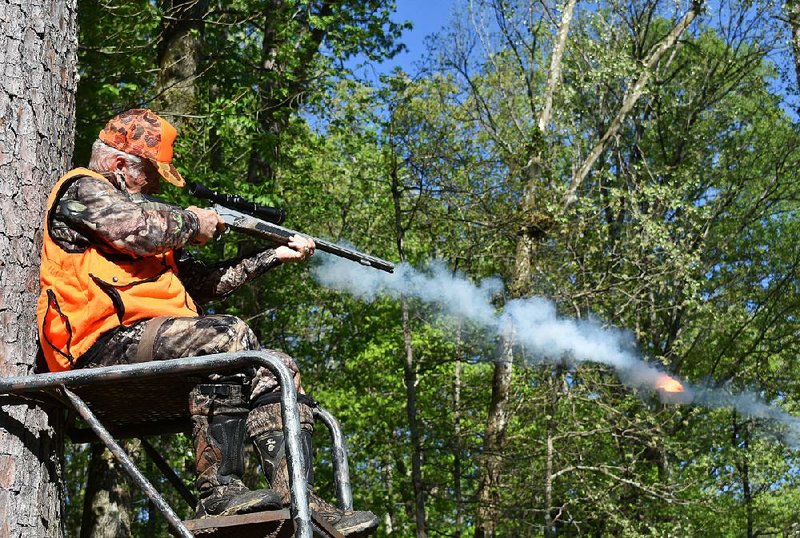Muzzleloader deer season opened Saturday, beginning a long stretch through Christmas when hunters may take deer with firearms.
Of course, a modern gun, antlerless-only season took place Oct. 13-17, but that was only for private land. The muzzleloader season is statewide, so you can hunt on national forests, national wildlife refuges, wildlife management areas and U.S. Army Corps of Engineers property, where permitted.
A modern gun deer season for hunters age 16 and younger will take place Nov. 3-4, followed by the statewide opening of modern gun deer season Nov. 10.
For muzzleloader deer season, hunters may only use non-repeating firearms that load from the muzzle. Muzzleloading firearms come in a variety of styles in varying levels of modernization, but they all operate on the same principle. A catalyst, be it a chunk of flint, percussion cap, 209 shotgun primer or large rifle primer, detonates a powder charge that must also be loaded from the muzzle. The bullet, be it a round lead ball, conical lead bullet or modern jacketed bullet, is seated firmly atop the powder charge.
When the powder ignites, the rapidly burning gas creates 13,500-23,400 pounds per square inch of pressure -- depending on the propellant and bullet -- to send the bullet down the barrel and out the muzzle.
Muzzleloader season, as it is popularly known, is a prime time to hunt whitetailed deer. The weather is usually pleasant. Mornings and evenings are cool, and the foliage is taking on its fall splendor. Mosquitoes, gnats and horseflies are not as bothersome as they were in warmer weather.

Deer are in the pre-rut, a period of high activity before the breeding season. Mature bucks are more likely to move during the daylight hours, and you might even see several bucks together. Does are still in groups, too.
Mid-October is usually dry. This is when acorns and soft mast usually fall, so deer prefer those food items over supplemental feed that hunters provide, like corn, soybeans and rice bran.
This year is much different, and hunting patterns will be different, too. Because of the wet weather, most trees have already shed their acorns, and soft mast like persimmons has already fallen and been consumed. Consequently, deer will pay more attention to supplemental feed and to cultivated food plots than they usually do this time of year.
The peak times for deer movement are within 90 minutes after sunrise, within 90 minutes before dusk, and often a 90-minute period in the middle of the day.
Where I hunt in Grant County, I have one stand that is very dependable during muzzleloader season. It is in a streamside management zone between two pine thickets.
I could always depend on a doe showing up at a certain place in a clearing at about 8 a.m. on opening day. Through 2011, big herds of does often appeared in the clearing at dusk. The members of my hunting club don't see herds anymore because we and the hunters in neighboring clubs kill a lot more does nowadays, but we see more pronounced pre-rut activity. I notice bigger rub lines where bucks rub their antlers on trees, and also more scrapes where paw the ground and mark with scent. Scrapes are like check-in kiosks for deer to leave scent messages to the opposite sex.
For the last two year, does no longer visit this place in the morning, but mature bucks usually visit in the evening. In 2017, I killed my biggest buck to date at my club during muzzleloader season. The same evening, within minutes of me killing my buck, another member of our club also killed a mature buck about a half a mile away.
In 2015 I missed the biggest buck I'd seen to date at my club during the muzzleloader season.
For reasons I cannot identify, muzzleloader season has transitioned from a guaranteed time to take a doe to a time when there is excellent chance of taking a mature buck.
Ralph Meeker, the deer program coordinator for the Arkansas Game and Fish Commission, said hunters usually kill 25,000 to 30,000 with muzzleloaders annually, or about 13 percent of the total deer harvest.
Hunters usually kill about 35,000 deer on opening day of the modern gun season alone. The number that hunters kill with muzzleloaders is comparatively modest, but the muzzleloader season is an important element for managing the state's deer population.
Sports on 10/21/2018

